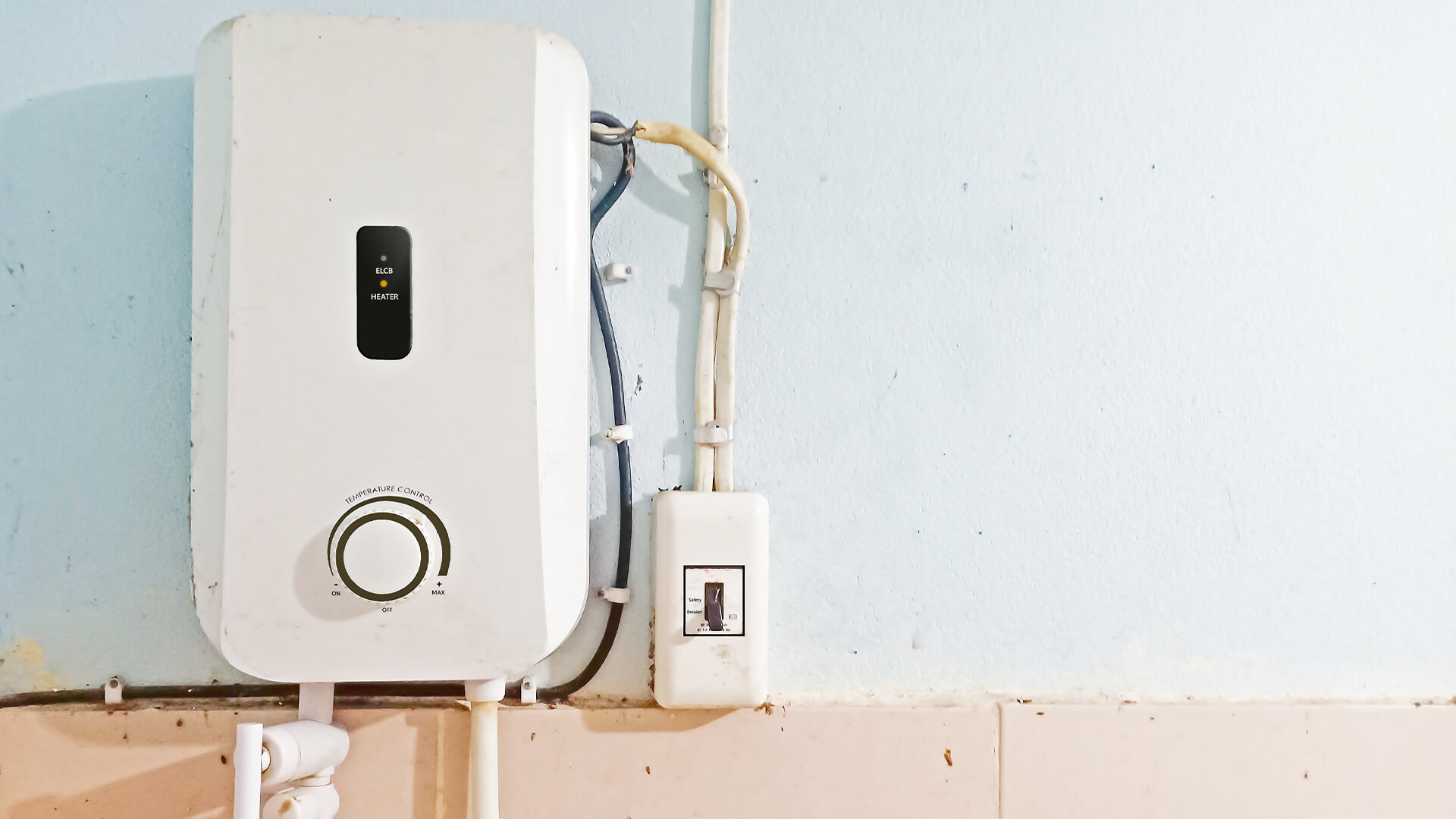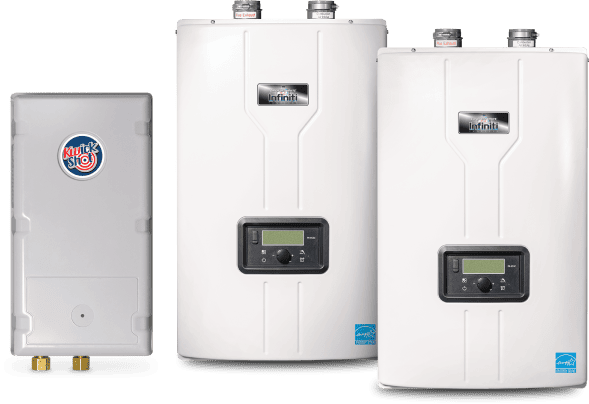Why On-Demand Water Heaters Provide Unmatched Benefits
Why On-Demand Water Heaters Provide Unmatched Benefits
Blog Article
This post further down on the subject of 5 Benefits of Tankless Water Heaters is unquestionably intriguing. Read on and make your own personal results.

In a globe where benefit and performance reign supreme, it's not a surprise that homeowners are constantly looking for smarter means to handle their home's power usage and convenience. One technology that has continuously acquired appeal is the tankless water heater. However just what makes these systems stand out from the conventional tank-based designs a lot of us matured with? Allow's dive in and explore the benefits of tankless water heaters, helping you choose if it's time to make the switch in your home.
Introduction
Image this: you enter the shower after a lengthy day, expecting a relaxing cascade of hot water, only to be greeted by icy beads due to the fact that the last individual used everything up. Sound familiar? Typical hot water heater keep a fixed quantity of hot water, suggesting you're at the mercy of that storage tank's supply. Tankless systems, on the other hand, heat water on demand. No more running out mid-shower, say goodbye to wrestling with routines simply to ensure hot water is available.
Understanding Tankless Hot Water Heater
What Are Tankless Water Heaters?
Tankless hot water heater, in some cases referred to as on-demand or instant hot water heater, provide warm water only as it's required. Rather than storing gallons of pre-heated water, these devices kick right into activity the minute you switch on the tap. Water passes through a warmth exchanger, warming up in real-time, suggesting you get an undisturbed flow of warm water without the requirement for a large container resting idly by.
Exactly how Do They Differ from Standard Solutions?
Conventional heaters hold a storage tank of hot water, making use of energy to maintain that container at a consistent temperature level. Tankless devices eliminate the standing supply, lowering squandered power and the large impact of a large cylinder. Essentially, you're upgrading from a "accumulation" state of mind to a "made-to-order" method.
Common Types of Tankless Devices
Tankless hot water heater normally are available in 2 ranges: gas and electrical. Gas versions have a tendency to deliver greater flow rates, perfect for larger houses, while electrical models usually serve smaller sized homes and are usually easier to set up. Additionally, some systems are created for point-of-use (offering one fixture) while others can take care of the entire home's warm water needs.
Secret Benefits of Tankless Water Heaters
Energy Performance and Expense Financial Savings
No more heating a giant container's well worth of water and keeping it toasty all the time. Tankless heating systems reduce standby energy losses, which can decrease energy expenses. While the initial expense might be greater, the long-term cost savings usually justify the financial investment.
3. Space-Saving Design
If your home is short on storage space, eliminating the large container frees up important space. Tankless units are small and can usually be placed on wall surfaces, concealed in edges, or installed in tight utility closets without grabbing all of the whole space.
4. Longer Lifespan
A well-maintained tankless hot water heater can outlive its tank-based cousin. Conventional tanks could last 10-15 years, while tankless versions can keep downing along for twenty years or more, making them a strong investment gradually.
1. Countless Hot Water Supply
Ever before needed to schedule showers so every person obtains their fair share of warm water? With tankless, that becomes a distant memory. As long as the heater's flow capability isn't gone beyond, you can take back-to-back showers without turning into a popsicle.
5. Improved Water High Quality
Storing water in a storage tank can occasionally bring about debris accumulation or a somewhat "off" preference. With tankless systems, fresh water is warmed instantly, lowering the chances of sediment accumulation and potentially using cleaner-tasting water.
Factors to consider Prior To Switching
Though the benefits are engaging, it's smart to consider a couple of variables prior to totally devoting.
Reviewing Your Home's Water Use Patterns
If your family all at once utilizes multiple components with high hot water need, make certain the unit's circulation rate meets your requirements. Recognizing your use patterns helps you choose the right dimension and type of tankless heating unit.
Maintenance and Care Tips
Tankless systems are relatively low maintenance, yet they aren't set-it-and-forget-it appliances.
Normal Cleaning and Descaling
Difficult water minerals can accumulate in the heat exchanger, influencing efficiency. Routine descaling (often recommended yearly) maintains the device running at peak performance.
Annual Professional Assessments
A yearly checkup from an expert makes sure small problems are captured early. They'll examine the system's efficiency, try to find leaks, and assist preserve optimal performance.
First Financial Investment Expenses
Tankless heating systems commonly feature a higher ahead of time cost. In between the unit itself and potential setup modifications, the first expense may provide you sticker shock. But bear in mind to see it as a lasting investment.
Setup Needs
Depending on your home's facilities, you may need additional electrical capability or gas line upgrades. Ensure you comprehend the installment requirements and consult with an expert to stay clear of surprises.
Making Sure Proper Ventilation
For gas designs, correct ventilation is vital to safely expel exhaust gases. Make certain airing vent systems are tidy and appropriately mounted to prevent any prospective security threats.
Contrasting Different Brands and Designs
Not all tankless hot water heater are produced equal.
Investigating Trusted Manufacturers
Seek reputable brand names with a background of creating high quality units. A dependable maker usually supplies much better consumer support and longer guarantees.
Installation: DIY or Expert?
While some property owners delight in dealing with tasks themselves, tankless installment may not be the best time to break out the tool kit.
Pros and Cons of DIY Installment
A DIY mount could save money, but it includes threats. Incorrect installment can bring about inadequacy or safety and security issues. If you're handy and have experience, it may be viable-- but proceed with caution.
Reading Evaluations and Customer Responses
Customer reviews and feedback from neighbors or close friends that have actually gone tankless can supply valuable insights. In some cases, real-life experiences can be much more telling than marketing brochures.
When to Call an Expert Plumbing
For the majority of, calling a professional guarantees everything's done properly. An expert plumbing recognizes regional codes, sizing requirements, and venting criteria, decreasing the threat of mishaps.
Taking full advantage of Performance
You've purchased a tankless system-- currently optimize its efficiency.
Ideal Temperature Setups
Lots of people establish their devices between 120-140 F. Adjusting the temperature can improve comfort and financial savings. Experiment to find a wonderful place that doesn't throw away power.
Pairing with Low-Flow Fixtures
Wish to extend your system's capabilities? Think about mounting low-flow showerheads and faucets. They decrease water usage, allowing your tankless system to supply a constant stream of hot water without straining.
Ecological Effect
Tankless hot water heater line up with greener living objectives.
Minimized Carbon Footprint
By using less power and just heating water as needed, tankless systems can lower your home's carbon impact, reducing your ecological influence.
Saving Natural Resources
Less power usage and less squandered hot water translate into fewer natural resources being used, an ecological win-win.
That Benefits Most from Tankless Heaters?
The appeal of tankless heating systems is that they can match a range of families.
Huge Households vs. Single Residents
Large families could like the countless hot water supply, while solitary residents value the energy financial savings from not heating an entire container for just one person's morning shower.
Homeowners with Restricted Area
If your home is short on square video, losing the cumbersome tank maximizes area for various other fundamentals-- or possibly just much more elbow room.
Eco-Conscious Consumers
Going tankless aligns with environmentally friendly values, ensuring you're not wasting power or sources.
Future Fads in Tankless Hot Water Heater
The globe of home devices is ever-evolving, and tankless hot water heater are no exemption.
Innovations in Innovation
R&D is regularly enhancing heat exchangers, making systems a lot more effective and resilient. Future models might be even quieter, a lot more portable, and much better fit for differing environments.
Smart Home Integration
Visualize readjusting your water heater's temperature by means of an app or obtaining maintenance alerts on your phone. As smart home tech advances, we'll see more connectivity and comfort.
Final thought
Selecting a tankless hot water heater is more than just updating your home's warm water system; it's investing in long-term convenience, energy efficiency, and a greener way of living. By considering your family's water usage, bearing in mind installation demands, and committing to routine maintenance, you can appreciate a consistent stream of hot water without the baggage of a large container. As innovation evolves, you can eagerly anticipate also smarter, a lot more reliable tankless solutions that not just make your life less complicated yet additionally profit the earth.
Pros and Cons of Tankless Water Heaters
Tankless Water Heater Pros
Saves Energy: Simply put, you re spending less energy to create hot water, so your total carbon footprint goes down, not to mention your bills. Lasts Longer Than Storage Tanks: Storage tank units need to be replaced every 15 years or so. But tankless units? They can last for 30 years before they give out on you. Constant Hot Water: Need to take a shower and don t want the water running cold? Awesome it won t. The water will stay hot the entire time because it creates hot water on demand. Saves You Money: Less water usage equals less money. Beyond that, you re not paying to keep water hot 24/7. Those savings add up quickly. Better for the Environment: Less water waste is better for everyone. It saves you money, but it s also environmentally conscious at the same time. Tankless Water Heater Cons
It Can Take a Minute: Depending on your specific unit and its placement, it can take anywhere from 10 seconds to 2 minutes to fully heat up. Because there s no storage tank, it heats water as you need it. Upfront Purchase Price: While we talked about their longevity, there s sticker shock when you look at brand-new tankless units to install. It pays for itself, but it s still a big chunk of change at first. Has its Limits: If you run multiple appliances at once, such as the dishwasher, washing machine, and maybe you take a shower at the same time, there might not be enough hot water. https://www.airsouthnow.com/blog/water-heater-service/pros-and-cons-of-tankless-water-heaters/

As an enthusiastic person who reads about Pros and Cons of Tankless Water Heater, I thought sharing that piece of content was worth the trouble. Sharing is caring. You won't know, you may be doing someone a favor. We truly appreciate reading our article about Unveiling the Hot Trend: The Benefits of Tankless Water.
This Post Report this page